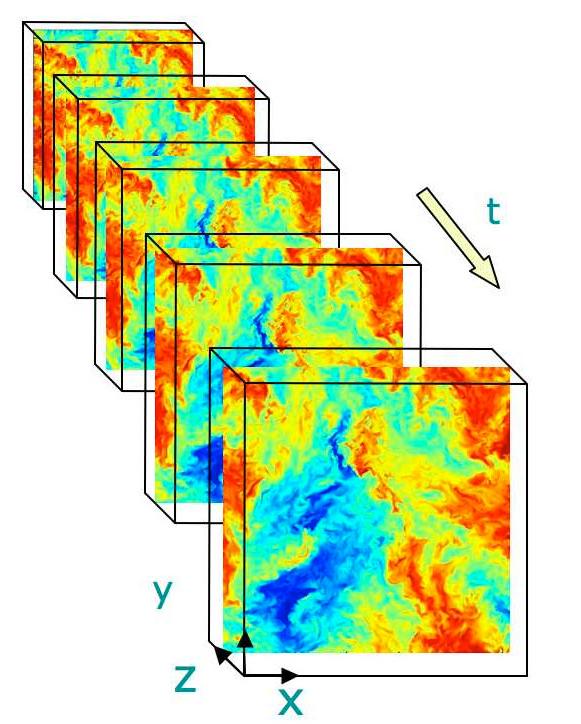Johns Hopkins Turbulence Databases

Using JHTDB with Python
Download
Python code: directly from here or https://github.com/idies/pyJHTDB
This downloads a directory with sample IPython Notebook code in the examples folder that illustrate the basic functionality of the interface. Choose one of the following to use the pyJHTDB package.
Please see the README file for more information.
Use through SciServer (RECOMMENDED)
The SciServer is a cloud-based data-driven cluster, of The Institute for Data Intensive Engineering and Science (IDIES) at Johns Hopkins University. Users get the advantages of more reliable and faster data access since the SciServer is directly connected to JHTDB through a 10 Gigabit ethernet connection. SciServer provides docker containers with the pyJHTDB library pre-installed.To use pyJHTDB through Sciserver:
Login to SciServer http://www.sciserver.org (may need to create a new account first).
Click on Compute and then Create container (You could also run jobs in batch mode, by selecting Compute Jobs).
Type in Container name, select JH Turbulence DB in Compute Image and then click on Create.
Click on the container you just created, then you could start using pyJHTDB with Python or IPython Notebook.
Use on local computers
Installing pypi version
If you have pip, you can simply do this:pip install pyJHTDB
If you're running unix (i.e. some MacOS or GNU/Linux variant), you will probably need to have a sudo in front of the pip command. If you don't have pip on your system, it is quite easy to get it following the instructions at http://pip.readthedocs.org/en/latest/installing.html.Installing from source
In terminal:
cd /path/to/your/folder/
git clone https://github.com/idies/pyJHTDB.git
cd pyJHTDB
python update_turblib.py
pip install --upgrade ./
Last update: 12/2/2019 3:14:44 PM